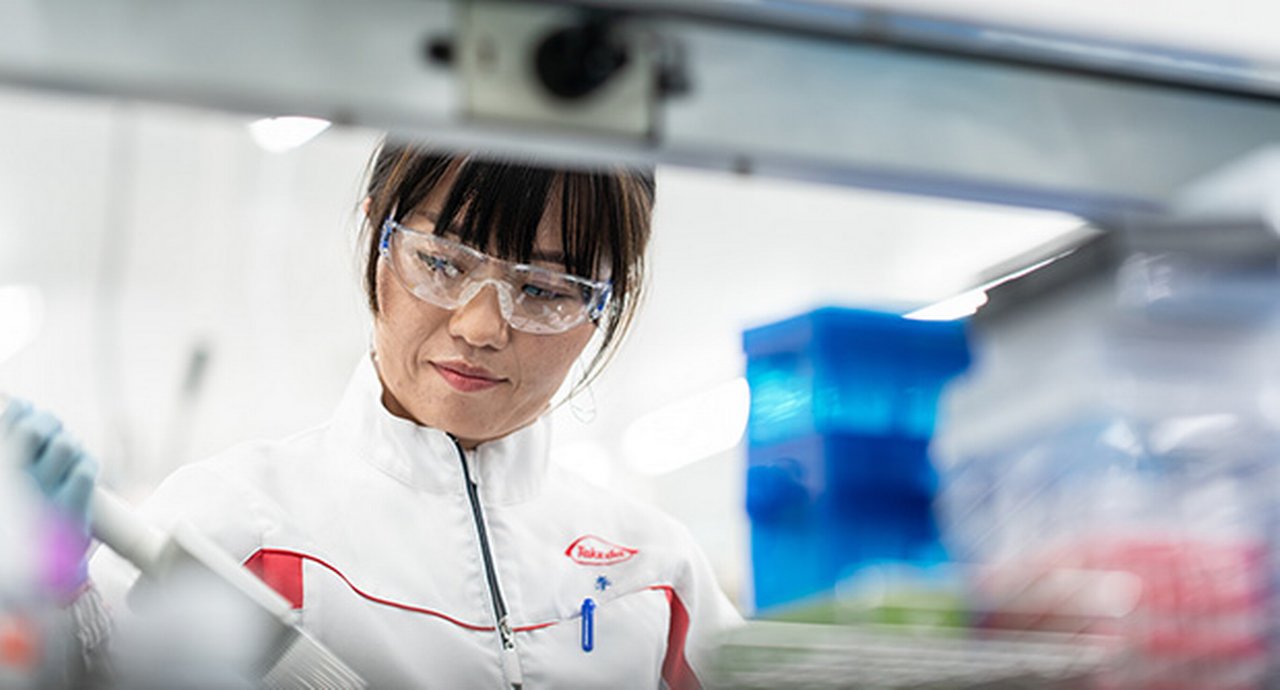15 October 2025
The sealants-to-shampoos multinational is steadily expanding its products portfolio in Asia Pacific and digitalisation of payments is sharpening its customer service. Henkel China’s Regional Treasurer APAC, Sophie Yang, tells flow’s Will Monroe that innovation is central to driving growth
MINUTES min read
Henkel AG is a hybrid of well-known industrial and consumer global brands. Believing in strength through diversity, nearly 150 years on from its formation the Dusseldorf-based company has established a multinational electronics and industrial business that encompasses sealants and adhesives such as Loctite and Pritt, while consumers know Henkel better for household brands, with Persil detergent and Schwarzkopf hair products among the most familiar names. In the US, Henkel added Dial antibacterial soap and Purex laundry detergent to the portfolio 20 years ago when it acquired the Dial Corporation.
The company reported total revenues of €21.6bn and operating profit of €3.1bn in 20241 and while challenging global economic conditions are limiting sales growth, Henkel’s profitability is robust through its ‘Purposeful Growth’ strategy2 that features tight cost controls – including the merger of its beauty, laundry, and home care businesses into a single Consumer Brands division in 2022 – and a wide range of products. The company’s hair products, electronics and industrial businesses are reported to currently be growing at the fastest pace.
Deutsche Bank has worked closely with the company for many years, helping with initiatives from greening its supply chain to preparing bond issues for the market. In recent years the partnership has focused particularly on helping drive Henkel’s expansion in Asia Pacific (APAC) markets.
The key elements of Henkel’s Strategic Framework are “a winning portfolio with strong brands and solutions, a clear competitive edge in the areas of innovation, sustainability and digitalisation, and future-ready operating models – underpinned by a strong foundation of a collaborative culture and empowered people".3 This framework has provided resilience in China, despite the country’s economic growth easing a few percentage points in recent years.
Although originating in Germany, more than 80% of the company’s global workforce of 47,000 is employed outside the home country.4 In extending its operations worldwide Henkel is looking to further growth in Asia. In 1971, Henkel established a representative office in Hong Kong, marking an official entry to the Greater China market. This case study looks at Henkel China’s growth over nearly four decades and how its cash management is evolving in response.
Expansion in Shanghai and the wider APAC region
For the past two decades Henkel China’s operations have been centred on the global financial hub of Shanghai which, since 2007, has been the location for its APAC and China headquarters. Six years later, Henkel opened the adhesives production facility in Shanghai. The ‘Dragon Plant’, which supplies the packaging, automotive and electronic industries and was promoted as a model of sustainability.
In 2017 the APAC/China head office transferred from Zhangjiang, Pudong District to the Henkel Management Centre (HMC) in New Jiangwan, Yangpu District, a building able to house around 1,500 Henkel employees. The original site received a €60m investment in 20215 to transform it into Henkel’s Inspiration Centre for Adhesive Technologies in China, with the facility officially opening in September 2025.6
Shanghai was also chosen in 2024 when Henkel opened the Asia Research and Development (R&D) Centre for Consumer Brands, its largest R&D facility in Asia.7 In May 2025, the Adhesive Technologies Application Engineering Centre, focused on developing future-oriented technologies across key industries, opened its doors in the city,88 and this was closely followed by the Inspiration Center for Adhesive Technologies in September.
While Shanghai is certainly a core hub for Henkel, a further recent opening, in 2022, was the South China Application Engineering Centre (SCAEC), with the Dongguan Songshan Lake Hi-Tech Industrial Development Zone in Guangdong province selected as the location.9 Situated at the centre of China’s consumer electronics cluster, SCAEC is a state-of-the art facility to accelerate the development of next-generation consumer electronic products and foster industry innovation that houses advanced testing, analytical and research laboratories.
Other cities across the APAC region have also received investment. Another recent opening, in February this year, was Henkel’s new Application Centre in Busan, South Korea, to develop cutting-edge solutions and technical expertise for the sports and fashion industry.10
A diverse portfolio
Henkel CEO Carsten Knobel has said that the company has strategic plans for growth in the APAC region. This is being achieved partly through acquisitions such as the 2022 acquisition from Japan’s Shiseido cosmetics group of its Hair Professional business in APAC,11 and 2024’s purchase from Procter & Gamble of the Vidal Sassoon brand and its related hair care business in China.
In March 2025, Henkel China added Suzhou Boke Biotechnology, a producer of personal care and hygiene products that was already a trusted partner and supplied the company along with other multinationals such as Unilever, L’Oréal and Revlon. "Henkel has actively engaged in several transactions and its global acquisitions have also had an impact on its China business," confirms Sophie Yang, Regional Treasurer APAC for Henkel China.
With China’s previously rapid economic growth slowing in recent years, Henkel’s diversified product portfolio is a strength, with top-line revenue driven fairly equally between the Adhesive Technologies and Consumer Brands divisions – with the former still maintaining an edge in APAC despite the recent acquisitions.
Yang has been in her present role for seven years, having initially joined Henkel China in 2011 as Gr. China Compliance Manager, before taking up the position of China Treasury Manager a year later. "I had been external auditor for Deloitte for three years and also worked for another US company and gained experience in compliance and audit," she recalls. "Offered an opportunity in treasury, I decided to ‘deep dive’ and change the exposures to better prepare me as a professional.
"Compliance and treasury are interlinked, as both involve networking and it has facilitated my treasury work – for example in closely collaborating with colleagues in purchasing on supply chain finance issues."
Yang’s treasury team of two professionals are based in the HMC and overseas APAC treasury activities. There are also two shared service centres in China and Philippines that handle routine treasury jobs (i.e., payments) and keep a close dialogue with Yang and her team on a regular basis.
"There is regular communication between Düsseldorf and each of the company’s regional treasury centres worldwide to steer treasury activities and to provide services," she explains. “There is a great deal of crossover between group and regional treasury to ensure that we’re aligned. Each of our 13 APAC markets is strategically important, and we closely monitor their individual business performances."
“Each of our 13 APAC markets is strategically important, and we closely monitor their individual business performances”
Yang is widely recognised for being innovatory, with an ability to anticipate the road ahead that has been recognised through several awards, including one for successfully launching a Green Supplier Financing programme across the region. Henkel China was first to set up a renminbi (RMB) cross-border cash pool in 2018, as soon as China’s regulator amended the requirements for cross-border cash pooling. The company was also at the head of the queue of applicants to the State Administration of Foreign Exchange for authorisation, and supporting documents were waived through to make straight-through processing easier.
Henkel swiftly enhanced its APAC cross-border cash pool to repatriate surplus cash to its Germany head office. "We’ve actively remitted liquidity from Shanghai to Düsseldorf and increased transfers as it made good economic sense when China was cutting interest rates and Europe was regularly hiking them," says Yang. "More recently of course, the gap between the two regions has started to narrow. We’re able to remit surplus cash for investment in more attractive yields – as many other multinational corporations do."
Extending cash management
Digitalisation has also been on the treasury agenda for the past six years, with Henkel China launching digital payments for its Adhesives and Consumer Brands online e-Shop and also setting up a digital yuan (e-CNY) wallet facility for local distributors.
Yang’s team also began a dialogue with Deutsche Bank on digital solutions and business solutions that would improve customers’ experience, both in China and Henkel’s other major APAC markets such as Korea and Indonesia.
"Early on we discussed with the Henkel China treasury team how we could build up its adhesives business through making online payments easier, for example by directing clients to their favoured e-banking platform for making payments," says Bryan Tan, Regional Cash Management Sales, APAC at Deutsche Bank. "In response to the various cosmetic business acquisitions, there was also a need to extend the cash management offering to include merchant solutions."
"We’ve worked with Deutsche Bank on various projects in recent years and it’s one of our core cash management banks for APAC," confirms Yang. "
The most significant of the recent joint initiatives was the introduction in early 2024 of an application programming interface (API)-based real time transaction and balance notification solution. The initiative, recognised by a win for the Best Payments and Collections Solution at The Asset’s Triple A Treasurise awards in May 2025,12 took six months to implement and enables the company to receive intraday bank statements and realise real time reporting of payments and Accounts Receivable clearing.
"Our pre-payment customers have wanted same-day delivery of goods, and we can now do this," says Yang. "Business units can be informed in real time of incoming funds so that goods are immediately released, and there is auto account receivables reconciliation for these collections in our SAP system. Treasury contributes to the last step of the payments path, to ensure a smooth end-to-end online shopping experience."
"Henkel is …one of our most forward-looking clients in embracing the digitalisation agenda”
This solution is a welcome advance for the Henkel Adhesives eShop. An online store, it allows existing customers to access product availability and pricing as well as placing and managing orders.
"Henkel is both one of the bank’s biggest cash management clients and one of the most forward-looking in embracing the digitalisation agenda, with both treasury and CFO departments keen to adopt digital solutions, while enhancing their end client experience," adds Rachel Whelan, Deutsche Bank’s Head of Corporate Cash Management – APAC and MEA and Global Head of Payments and Transactional FX.
"Providing merchant solutions for Henkel across APAC to support their online business is the next initiative. We’ve already launched with them in Korea and the next stop is Indonesia, as part of a wider rollout across the region." Henkel’s ambitions to expand its APAC business should extend this facility to a growing range of business.
Sources
1 See henkel.co.uk
2 See henkel.com
3 See henkel.co.uk
4 See henkel.co.uk
5 See henkel.com
6 See henkel.com
7 See henkel.com
8 See henkel.com
9 See henkel.com
10 See henkel.com
11 See henkel.co.uk
12 Registered readers (free to sign up) can view the Asset win here



